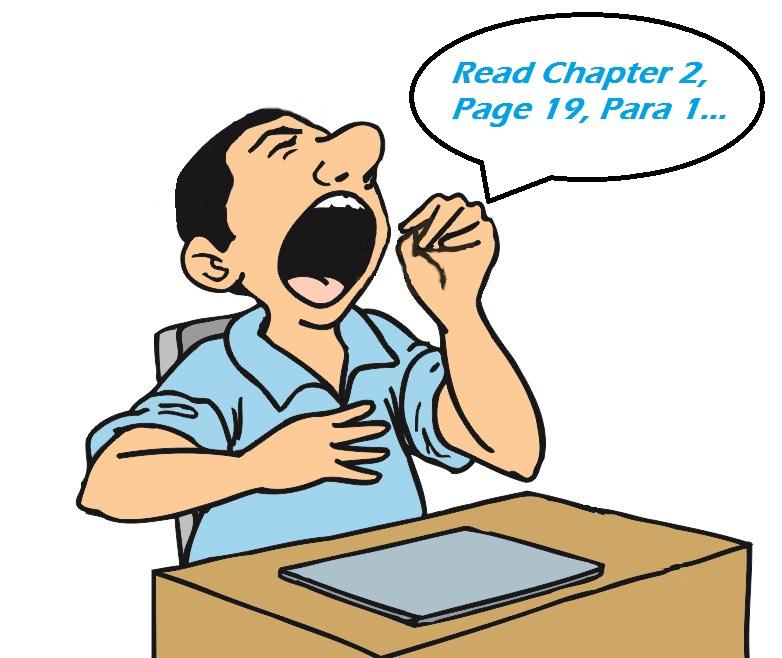The Success For All framework both enables and encourages lazy teaching. This is a quiet threat to education—specifically in poor and racially segregated districts across the country.
As a teacher, the consequences of giving into this laziness are disturbing, mostly because the content that’s handed to us in plastic bins (one per “cycle”) contains severe myopia, an inability to see the world as it really is.
In the reading about AIDS in an infectious disease magazine, there is no mention of gender or sexuality. There is no mention of the hysteria and stigma surrounding the “gay plague” of the 80’s and 90’s.
In the reading that extolls the ingenuity inherent in the creation of Dubai, there is no mention of the migrant workers—lured away from India or Pakistan, their passports confiscated—who’ve built the city, sometimes at the cost of their lives.
These are just two examples of why teachers need the discretion to choose their own content.
While it can be comforting for teachers to not have to think about what they will teach, it can at the same time be frustrating, and also serves to devalue the content and curriculum itself, while also playing into the hands of those who would seek to profit from the creation of canned content like textbook companies, educational services providers like SFA, and those who’ve labeled themselves “education reformers”.
At the end of my second year teaching with SFA, I see more and more decisions taken away from teachers. And I have to admit that I also have felt the call to give into this point of view. Somewhere in a dark recess of my mind, I’m grateful to be rid of the burden of choice. After all, I’ve spent many a late night (or early morning) roaming the internet, combing bookshelves, texting peers in order to find that perfect short story, article, or political cartoon. This is not a healthy habit.
For one, there is no perfect resource. And secondly, a teacher gains this kind of content knowledge over time: where to get great resources, whom to speak to when you want a good lead on poems. The thing about SFA is that they take away this evolving portion of the profession. There is no deepening of a teacher’s content knowledge, only tweaking of data entry and classroom management. There is no growing understanding of who you are as a writer and how you can best teach others to write well, because writing extends no further than the state’s standardized test. If you can hit all the pieces from SFA’s rubric with relatively few errors, then you’re gold.
I believe that those in power in districts like ours don’t trust teachers to raise test scores. And I get this, on some level. Our funding and local control depend on those scores. Yet I don’t think that it’s helpful to one, pretend that giving students a quality education is the same thing as raising test scores, and two, that teachers can’t do both without a scripted curriculum, if given the time and latitude.
Yet I as a teacher have felt comforted at times that I can arrive at school without needing to come up with my own specific plans. And this is the allure of something like SFA: by taking away choice and agency, they also take away a certain amount of teacher anxiety. I catch myself thinking this way sometimes, and it disturbs me.
It is frustrating that my supervisors refuse to allow us to mold our own content to the SFA framework. They say that this would take us too much time, and that we should spend that time on data entry. It is frustrating that they imply that it is specifically because we enter quantitative data that students “improve” and that it is this “improvement” of student test scores that shows which teachers are “good” and which are “bad”. This is nothing new. People like Diane Ravitch have been writing about it for years, but it is disturbing to watch it unfold in front of you.
We oftentimes don’t stop to question this lunacy, because we’ve latched onto the buzzwords: “data entry”, “moving students”, “measurable”. So-called education reformers love these terms, because again, it allows us to be lazy about our thinking. Why is there so much emphasis on data entry? What the heck do we mean when we say, “moving students”? If something is easily measurable, does that automatically make it worth our attention?
Those questions are considered out of bounds. The educators who care about this have to remind ourselves that we shouldn’t give a damn about that, and go ahead and tell everyone who will listen that this is ludicrous, and no way to help mold citizens.
Not all teachers will be willing to do this. We have families to attend to, grades to enter, parent phone calls to make, referrals to write, and journals to read. But again, this plays into the hands of the education reformers: “Don’t worry about it,” they say, “we will take care of the content, and even the format and the exact words, if you like. You worry about teaching.” The trouble is that our definitions of teaching split here, because I refuse to be nothing other than a technician, and those of us who care need to remind ourselves of this continually.
Our profession, our students, and our democracy depend on it.

